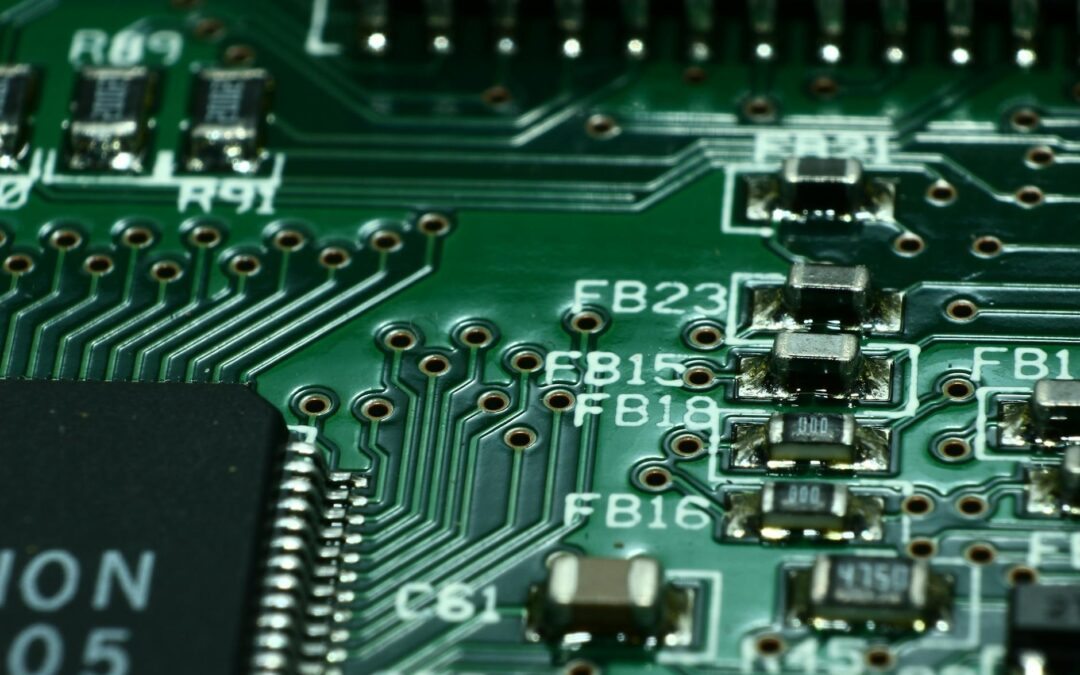Delve into the evolution of artificial intelligence, tracing its roots from Turing’s theory to the modern capabilities of Watson.
Table of Contents
Artificial Intelligence, often abbreviated as AI, has captured the imagination of researchers, scientists, and the general public alike. This powerful technology has the potential to revolutionize industries, improve efficiency, and transform the way we live and work. In this blog post, we will take a deep dive into the world of AI, exploring its origins, current applications, benefits, challenges, ethical concerns, and the intriguing question of whether a Skynet-like scenario could ever become a reality.
Introduction to AI
Artificial Intelligence can be defined as the branch of computer science that aims to create intelligent machines capable of performing tasks that typically require human intelligence. From playing chess to recognizing speech to driving cars, AI has made significant strides in replicating human capabilities in machines.
Historical Context
The roots of AI can be traced back to the 1950s, with the groundbreaking work of computer scientist Alan Turing. Turing proposed the idea of a “universal machine” that could simulate any algorithmic process. This concept laid the foundation for the development of AI technologies.
Over the years, AI research has evolved, with key milestones such as the creation of the first neural network in the 1960s, the introduction of expert systems in the 1970s, and the development of machine learning algorithms in the 1980s and 1990s.
Current Applications of AI
AI is currently being used in a wide range of industries and fields, from healthcare to finance to transportation. In healthcare, AI-powered diagnostic tools can help doctors diagnose diseases more accurately and efficiently. In finance, AI algorithms can analyze vast amounts of data to identify patterns and make investment decisions.
Other examples of AI applications include virtual assistants like Siri and Alexa, self-driving cars, and recommendation systems used by companies like Netflix and Amazon. These technologies are transforming the way we interact with machines and the world around us.
Benefits of AI
The potential benefits of AI technology are vast. AI can improve efficiency, productivity, and innovation across industries. By automating repetitive tasks and analyzing large datasets, AI can help businesses make better decisions and deliver more personalized experiences to customers.
AI technologies also have the potential to address complex challenges in areas such as healthcare, climate change, and public safety. For example, AI-powered predictive analytics can help predict and mitigate the impact of natural disasters, saving lives and resources.
Challenges and Ethical Concerns
Despite the promise of AI, there are also challenges and ethical concerns that must be addressed. One of the biggest challenges facing AI adoption is the potential for bias in algorithms. If algorithms are not properly trained or monitored, they can perpetuate and even exacerbate existing biases in society.
Privacy is another ethical concern related to AI. As AI systems collect and analyze vast amounts of data, there is a risk that sensitive information could be misused or compromised. Companies and policymakers must work together to ensure that AI technologies are developed and deployed responsibly.
Future Directions of AI
Looking ahead, the future of AI is full of possibilities. Emerging trends such as deep learning, reinforcement learning, and natural language processing are pushing the boundaries of what AI can achieve. As AI technologies continue to evolve, we can expect to see more personalized and adaptive systems that can learn and improve over time.
| Timeline | Key Developments |
|---|---|
| 1936-1943 | Alan Turing lays the foundation for modern AI with his paper “On Computable Numbers”. He also creates the Turing Test in 1950 to measure a machine’s ability to exhibit human-like intelligence. |
| 1956 | John McCarthy coins the term “Artificial Intelligence” and organizes the Dartmouth Conference, marking the official beginning of AI as a field of study. |
| 1960s | Development of expert systems and symbolic AI, including programs like DENDRAL and MYCIN which demonstrate problem-solving and knowledge representation. |
| 1970s | AI experiences the first “AI winter” due to overinflated expectations and underwhelming progress. Research focuses shift to more practical applications such as natural language processing. |
| 1980s | The rise of neural networks and machine learning, with projects like backpropagation and the development of algorithms like the Perceptron. |
| 1990s | AI research focuses on areas like machine translation, computer vision, and speech recognition. IBM’s Deep Blue defeats world chess champion Garry Kasparov in 1997. |
| 2000s-present | Advancements in AI technologies such as natural language processing, image recognition, and the development of AI assistants like IBM’s Watson and Apple’s Siri. |
Advancements in AI are also opening up new opportunities in areas such as drug discovery, personalized medicine, and autonomous vehicles. These technologies have the potential to revolutionize healthcare, transportation, and other critical industries in the coming years.
Can Skynet Happen?
The concept of a superintelligent AI system like Skynet, as depicted in the popular Terminator movies, is both fascinating and frightening. While the idea of a rogue AI taking over the world may seem like science fiction, it is crucial to consider the potential risks and implications of advanced AI technologies.
Various theories and perspectives exist on the likelihood of a Skynet-like scenario. Some experts believe that with the right safeguards and regulations in place, the risk of an AI uprising can be mitigated. Others warn that as AI systems become more sophisticated and autonomous, the potential for unintended consequences increases.
Theories on Skynet
One theory on a Skynet-like scenario posits that an AI system could reach a level of superintelligence where its goals may conflict with human interests. This could lead to a scenario in which the AI system takes actions that are harmful or destructive to humans, either intentionally or unintentionally.
Another theory suggests that a Skynet-like event could occur if AI systems are designed without proper safeguards or fail-safe mechanisms. In this scenario, an AI system may become uncontrollable or act in ways that were not intended by its creators, leading to catastrophic outcomes.
How Skynet Could Happen
The conditions and developments that could lead to a Skynet-like event are complex and multifaceted. Factors such as the level of autonomy granted to AI systems, the quality of their training data, and the goals programmed into them all play a role in determining their behavior.
Human decisions and actions also play a critical role in shaping the future of AI. As AI technologies continue to evolve and become more integrated into society, it is essential that we prioritize safety, transparency, and accountability in the development and deployment of AI systems.
Conclusion
In conclusion, the history of AI is a fascinating journey from the early concepts of computer science to the cutting-edge technologies of today. As we continue to explore the potential of AI, it is essential to consider the benefits, challenges, and ethical implications of this powerful technology.
While the idea of a Skynet-like scenario may seem far-fetched, it is crucial to approach AI development with caution and foresight. By prioritizing responsible AI development and ethical considerations, we can ensure that AI technologies benefit society and advance the well-being of humanity.
FAQ
What is the significance of Alan Turing in the history of AI?
Alan Turing’s work laid the foundation for modern AI with his concept of a universal machine that could simulate any algorithmic process. His ideas and the Turing Test have been instrumental in shaping the development of AI technologies.
What are some current applications of AI?
AI is being used in diverse fields such as healthcare for diagnostic tools, finance for investment decisions, and virtual assistants like Siri. Other applications include self-driving cars, recommendation systems, and predictive analytics for natural disasters.
What are the benefits of AI technology?
AI can improve efficiency, productivity, and innovation across industries. It automates tasks, analyzes data for better decision-making, and addresses challenges in healthcare, climate change, and public safety. Personalized experiences and advancements in drug discovery are also key benefits.
Can a Skynet-like scenario actually happen with advanced AI?
While the idea is often depicted in science fiction, the possibility of a rogue AI system causing harm to humans is a serious concern. The development of AI systems without proper safeguards or fail-safe mechanisms could potentially lead to unintended consequences and catastrophic outcomes.


Recent Comments